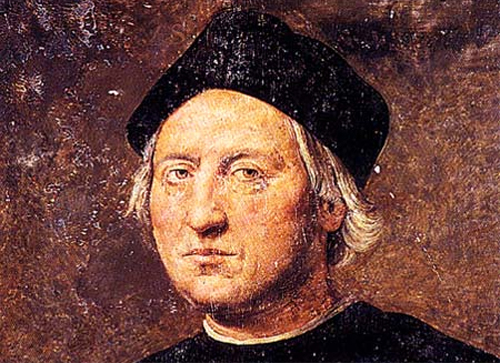Discussion and debate exemplar: Columbus: was he a hero?
Short Lesson Exemplar

Please note: this resource pre-dates the 2014 National Curriculum.
Lynn Cowell's Year 2 class had been doing a topic on a famous person from the past: Christopher Columbus. It began with a story and picture sequencing, followed by some research into the life of Columbus.
Lynn had invited Ray Verrier to the next session, to take the role of a sailor who had sailed with Columbus. Ray decided to play the part of a sailor who was very critical of Columbus and whose answers to the children's questions would challenge their heroic views of the explorer. So he took the role of Francisco Pinzon, the brother of Martin Pinzon (the captain of the Pinta, the second of Columbus's three ships).
For the children, this was probably the first time they had been asked to reconcile two opposing points of view on an historical figure - actively to debate and decide on different interpretations in history.
Preparing for and interviewing the sailor
Lynn explained to the children that Ray would be visiting the school in the role of Francisco, a sailor who had sailed with Columbus. What kinds of questions would they like to ask him? Together, Lynn and the children devised questions by going over what they had already found out about Columbus. The children worked both individually and in groups to come up with an impressive range and depth of questions.
During the interview Francisco told his story, gave his opinion of Columbus as a leader, and answered the children's questions. He cast doubt on whether Columbus was such an heroic figure after all.
The discussion
Lynn began by getting the class to recap points about the interview with Francisco. This they did accurately. She next moved on to Francisco's opinions of Columbus.
Lynn asked: 'Do you believe what Francisco said about Columbus?' The response from the whole class was 'Yes'. Then Lynn gently suggested that perhaps Francisco had been jealous of Columbus' success and his great welcome back to Spain by the King and Queen. She allowed this idea to simmer for a while.
Then one boy tentatively suggested that without Columbus there would not have been a voyage of discovery at all. Lynn mused with the class on this idea. Other ideas slowly surfaced, and gradually the children began to modify their initial views of Francisco's story. At this crucial stage of the discussion far deeper ideas began to emerge, not necessarily in favour of Columbus, but going back over some of Francisco's critical comments. Was Columbus really the gold-greedy man portrayed? Did he treat the natives badly? Did he cheat the sailor who first spotted land by claiming the reward of money for himself?
With such young children the discussion needed careful guidance by the teacher, and also sensitivity in holding in balance the heroic view of Columbus alongside the critical.
Summing up the children's interpretations
Finally, Lynn told the children that they would be writing a report on the Columbus voyage for the newspaper. As reporters, what would they write? Each pupil in turn was asked this question. It proved a good way of getting them to sum up their views. Some children stuck firmly to Francisco's evaluation, while others had modified their initial opinions. A few still held to an heroic view of Columbus.
Reflection
The structuring of this exercise was important in: the setting up of the interview using the children's own questions; the careful and sensitive discussion after the interview with the class teacher; the timing and pace of the discussion; and finally the drawing together and recording of ideas through the medium of a newspaper report.

